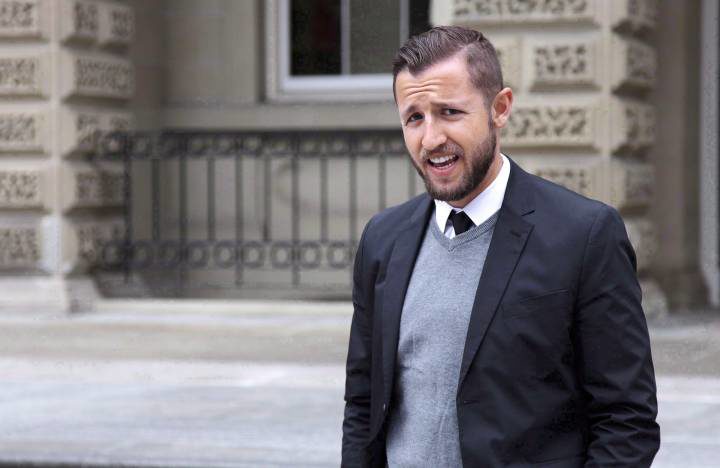By Colin Perkel
A reporter’s last-ditch attempt at blocking an RCMP demand for his background materials in a terrorism case failed Thursday with a judge refusing to stay the production order.
In her ruling, Ontario Superior Court Justice Breese Davies said the Mounties still have valid reasons to make their demand of journalist Ben Makuch and Vice Media, which said it would now give the RCMP what it has long asked for.
Vice and Makuch argued in April that the order was no longer legally valid because Farah Shirdon, formerly of Calgary, was dead. They based that assertion on statements from U.S. Central Command — Centcom — that Shirdon had been killed in Iraq in an air strike 2015.
Davies, however, said enforcement of the order would not amount to an abuse of process.
“The RCMP have been unable to confirm the veracity of the Centcom statement about Mr. Shirdon’s death,” Davies said. “It is therefore reasonable for the RCMP to continue its investigation into his activities.”
Vice Media’s latest attempt at thwarting the RCMP came little more than two months ago after the Supreme Court of Canada decided that Makuch had to turn over the logs of instant-messaging chats he’d had with Shirdon. Makuch used the material for three stories he wrote in 2014.
At issue in the latest hearing were the reliability of Centcom statements in 2017 and 2018 that indicated Shirdon was dead. The U.S. State Department still designates the suspect, wanted in Canada on terrorism-related charges, as someone “actively engaged in terrorism.”
A disappointed Makuch said Thursday he accepted Vice’s decision to give the RCMP what it wants to spare further litigation.
“It looks like this is the end,” Makuch tweeted after receiving the decision. “The RCMP has treated me as a criminal rather than as a journalist.”
The police action, he said, should trouble all journalists in Canada. He also accused the Mounties of wasting tax dollars in a dead-end pursuit.
“No journalist should be threatened or imprisoned for doing their job,” said Makuch, who expressed appreciation for the support he’s received from the journalism community through his four-year fight.
Vice lawyer Scott Fenton also expressed disappointment at Davies’ ruling.
“Vice Media will be complying with the production order,” Fenton said.
In a statement, Vice Media said the case called into question Canada’s standing as a defender of press freedom.
Shirdon, a prolific user of social media to recruit westerners to the Islamic State, has been quiet for several years. He is still wanted in Canada on various terror-related charges.
Davies said the Centcom statement on Shirdon’s death was “likely reliable” but said she accepted the RCMP’s contention that it had not been able to confirm the death itself. Nor was there any evidence, she said, that the RCMP was acting in bad faith.
As part of its investigation, the RCMP has long demanded Makuch’s instant-messaging chat logs that led to his writing stories about Shirdon.
Makuch had steadfastly refused to provide them, prompting a fight closely watched by media and free-speech activists that went to the Supreme Court, which upheld the production order in November.
Makuch now lives and works in the United States.

